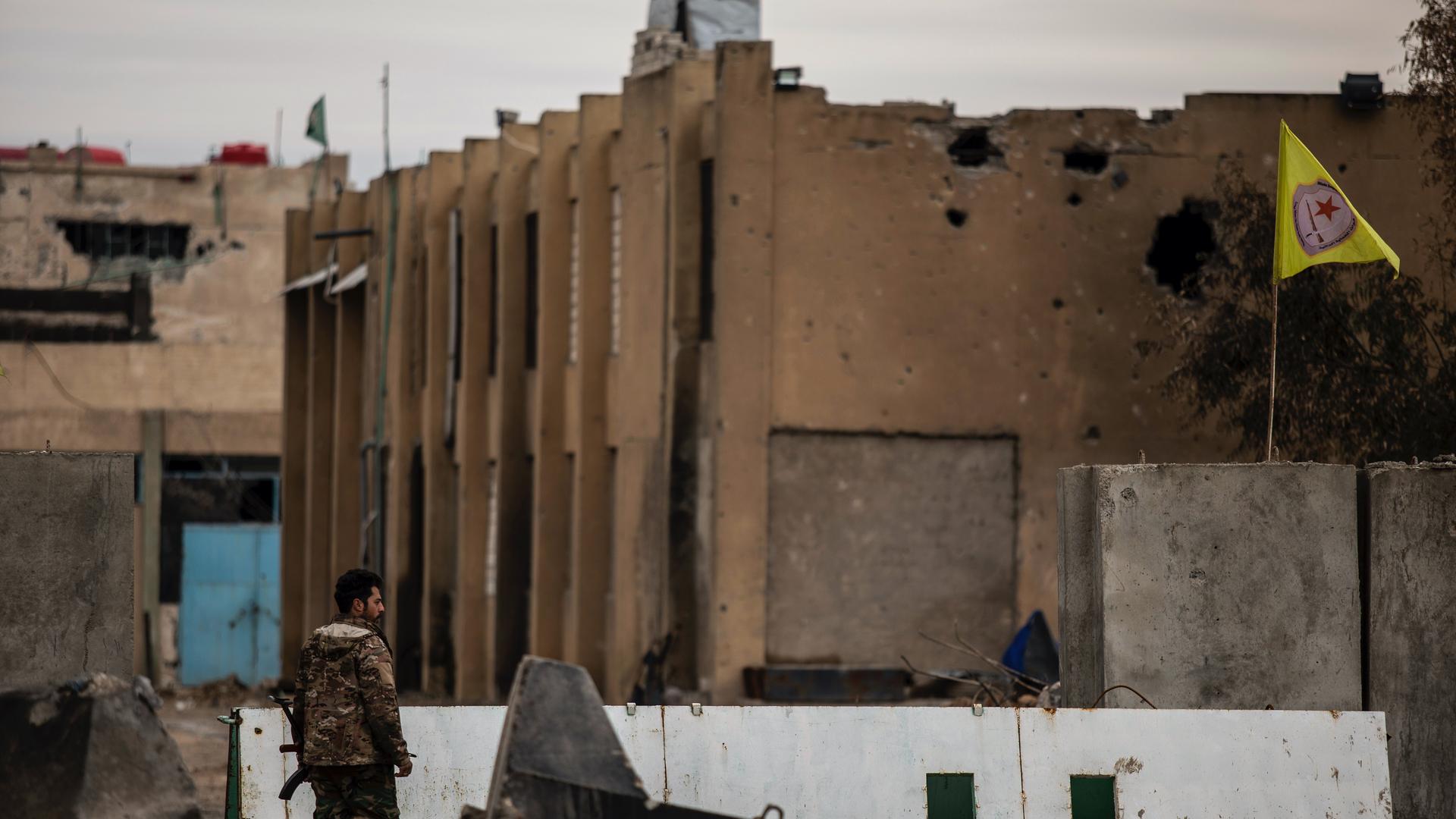The Kurdish group that runs the autonomous region in northeastern Syria announced a state of emergency this week in response to threats from Turkish President Recep Tayyip Erdoğan to start a new military campaign in northern Syria.
The Autonomous Administration of North and East Syria called on “all councils, bodies, committees and institutions to prepare for an emergency situation and to put all capabilities in self-defense projects.”
Threats from the Turkish president have been coming in since May.
“We will clean up Tal Rifaat and Manbij of terrorists,” Erdoğan said, referring to the two cities west of the Euphrates river in Syria, at a parliament meeting last month.
The cities are controlled by the People’s Protection Units (YPG), which Ankara considers a terrorist group. And Turkey claims the YPG has ties to the Kurdistan Workers’ Party (PKK), which it also considers a terrorist group, because it has waged a war against Turkey for decades.
Erdoğan said he plans to establish an 18-mile “safe zone” in northern Syria to counter the US-backed Kurdish group, and threats of a renewed military offensive have people there on edge.
Fared al-Mahlool, who lives in the area, said he has been hearing about the news for some time.
“Every day, there are Turkish forces entering the country through the border.”
“Every day, there are Turkish forces entering the country through the border,” he told The World over WhatsApp.
Mahlool fled to Idlib from a village further south when his home came under attack in 2019. He lost his aunt and he said that all of his family members were injured.
An attack on Manbij and Tal Rifaat, he said, would threaten the relative and fragile stability in northern Syria.
“The displaced people want to go back to their homes,” he said. “The Turkish operation doesn’t help.”
This wouldn’t be the first time that Turkey has carried out a military operation inside Syria. In 2019, after former President Donald Trump pulled American troops from the border, Turkey entered northern Syria and sent thousands of people fleeing to Iraq. Since then, Turkey has kept a presence inside Syria.
Merve Tahiroglu, Turkey program coordinator at the Project on Middle East Democracy, a Washington-based nongovernmental organization, said that the Turkish president’s threats this time have more to do with what’s happening inside Turkey.
“Currently, [Erdoğan] is performing really badly in all opinion polls, and Turkey is facing a pretty consequential election next summer,” she said.
Inflation in Turkey soared to nearly 80% last month, its highest level in about two decades. And food prices have skyrocketed.
So, Erdoğan is trying to shore up support from a key swing constituency — the hardcore Turkish nationalists, Tahiroglu explained.
“In previous years, every time he has carried out an operation in Syria targeting the YPG, he did manage to increase his popularity and votes among the nationalists,” she said.
Nicholas Heras of the Newlines Institute, also based in Washington, said that Turkey has already amped up its activity in northern Syria in recent weeks, targeting the SDF, the defense arm of the Autonomous Administration.
“There have been a rising number of Turkish drone strikes against various officials, both in the Autonomous Administration, as well as tied to the SDF,” he said.
Heras pointed out that the Biden administration can’t ignore these tensions with Turkey, a NATO ally. Roughly 900 American troops are currently in Syria. The US has strategic interests there, Heras said, both for countering extremist groups and in relation to Russia.
“Ukraine, Ukraine, Ukraine is the focus of the Biden team’s foreign policy. And what they hope to have in Syria is a long-term, quiet presence that has geopolitical impact,” Heras said.
In Turkey, Erdoğan has also presented this military operation as a way to help pave the way for the Syrian refugees in his country to return to Syria, yet another move that would boost his standing with the nationalist voters, Tahiroglu said.
“[It’s] to show his domestic base that he is doing something to create safe zones in Syria, where part of the Syrian refugee population in Turkey can be transferred to and thereby, quote-unquote, ‘solve Turkey’s refugee crisis,’” she added.
But about 77% of Syrians in Turkey say they don’t want to go back, according to a UN survey from last year. Previous projects to return Syrian refugees have largely failed.
Last week, speaking to journalists on the sidelines of the NATO summit, Erdoğan seemed to walk back his comments about a military operation in Syria.
“We are in no rush,” he told the journalists.
For now, people in northern Syria are waiting to see what he’ll do next.
Related: MBS visits Ankara as Turkey attempts to repair relations with its regional rivals
